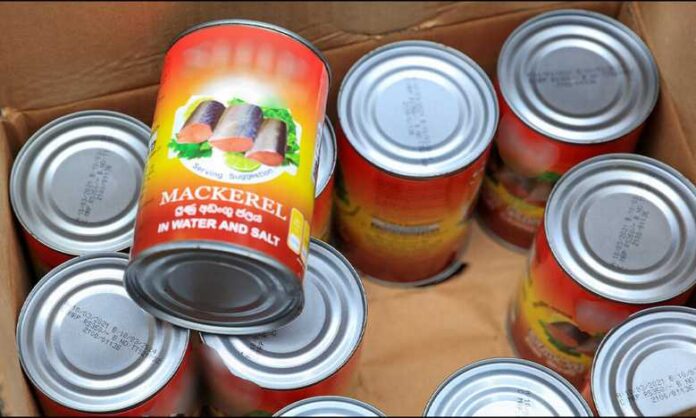The Sri Lanka Government has imposed price controls on canned fish despite recent controversies over similar measures.
The Consumer Affairs Authority -CAA- has set a ceiling of Rs. 380 for tuna, Rs. 420 for mackerel, and Rs. 560 for jack mackerel. Such interventions have sparked debates about their impact on quality, supply, and the domestic industry.
Critics say price controls could result in shortages, as happened with raw rice earlier this year. Historical examples, such as the shortages of the 1970s, further underscore the dangers of government-imposed ceilings.
Consumer rights groups have pointed out that low-quality products often flood the market under such conditions, possibly replacing high-standard imports.
The Canned Fish Manufacturers’ Association of Sri Lanka (CFMASL) has urged the government to reduce the Value Added Tax on salmon to ease the pressure in the industry.
While the President of CFMASL, Shiran Fernando, said the controlled price itself is not an issue, he warned that without VAT reductions, the local fishermen and producers would incur heavy losses.
However, Chairman CAA Hemantha Samarakoon said the price controls had been done amidst discussion with relevant stakeholders.
Yet, consumer rights activists have raised concerns over falling quality in products. Asela Sampath of the National Consumers’ Front (NCF) said that low price fishes are mixed instead of using expensive varieties like tuna. Goldstripe sardinella is given instead.
Local canned fish producers also face challenges from imported products. High import taxes—up to Rs. 200 per can—aim to protect domestic industries, but loopholes in regulations allow importers to exploit price control measures.
For instance, only specific weights of canned fish, such as 425g net and 280g drained, fall under the price ceiling. Slight deviations in weight render the gazette unenforceable, allowing manufacturers to set prices freely.
Sri Lanka’s canning industry of fish plays a crucial role in the local economy, employing thousands and supporting fishermen during lean months. Sixteen large factories produce several types of canned fish to meet about 95 percent of the national demand.
But this policy can also destabilise the sector. Locally produced sardines and mackerel, at Rs. 560 per can, have now become more expensive than imported salmon, which is being retailed at Rs. 380 after taxes. This undermines the competitiveness of high-quality local produce.
Besides, local producers say that price controls will make them operate at a loss. For instance, special tuna, which costs Rs 460 to produce, must now retail at Rs 380, forcing producers to either compromise on quality or quit the market.
Industry sources also feel that unless something is done to set right these anomalies, the domestic industry would collapse in three months.
Sri Lanka imports around €80 million of canned fish from countries such as China, Thailand, and Chile annually. Some insist on banning the importation of fish and increasing taxes in order to save the local market. Critics point out that these measures would only benefit importers more than the fishermen and producers.
The government’s policy is also being criticised on its discriminatory use. From a total of 30 canned fish varieties, only four come under the ambit of price control.
Critics argue that this will also be useless in serving consumers’ or industry interests. The earlier, reported efforts to saturate the market with inferior qualities of imports during festive seasons have also given credence to accusations of profiteering by import networks.
In their view, the import cess tax should be increased up to Rs. 450 or to reinstate an import ban on salmon, much like that in January 2024. The implementation of pragmatic steps-like sector-targeting tax policies-will make sure that the canned fish industry not only survives but survives with dignity and protects livelihoods for 600,000 people down the value chain.
After all, while price controls may be a way to make basic goods more affordable, the unintended consequences it creates regarding decreased quality, loopholes in the market, and the endangerment of local industries, balance should be drawn in policymaking.
